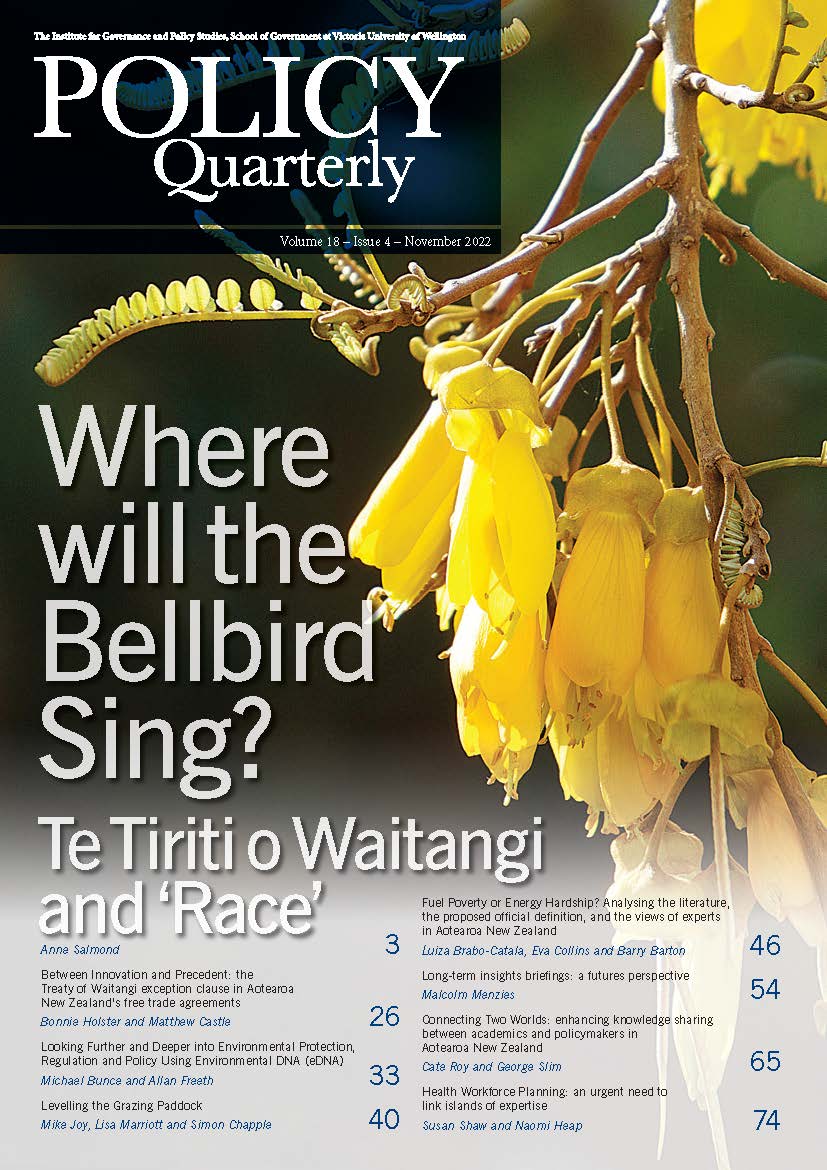Between Innovation and Precedent the Treaty of Waitangi exception clause in Aotearoa New Zealand’s free trade agreements
DOI:
https://doi.org/10.26686/pq.v18i4.8014Keywords:
trade policy, Treaty of Waitangi, path dependence, New Zealand, Crown– Māori relationsAbstract
New Zealand includes a Treaty of Waitangi exception clause in all its free trade agreements. The clause aims to protect Māori interests arising from the government’s Treaty of Waitangi obligations. But despite changes to New Zealand’s trade agreements, an evolving relationship between the New Zealand government and Māori, and debate over the adequacy of the clause, the exception clause has remained unchanged for 20 years. We suggest that the reproduction the same text helps New Zealand negotiators to credibly argue that inclusion of the clause is required for domestic political reasons. Yet this textual stability also hinders innovation. At the international level, FTA partners might balk at any widening of policy discretion afforded by a revised clause. At the domestic level, revising the clause would require difficult debate over the extent of appropriate protections for Māori in New Zealand’s trade agreements. As calls to change the exception clause grow, New Zealand trade policymakers will need to carefully balance innovation and precedent.
Downloads
Downloads
Published
Issue
Section
License
Permission: In the interest of promoting debate and wider dissemination, the IGPS encourages use of all or part of the articles appearing in PQ, where there is no element of commercial gain. Appropriate acknowledgement of both author and source should be made in all cases. Please direct requests for permission to reprint articles from this publication to Policy-Quarterly@vuw.ac.nz.



